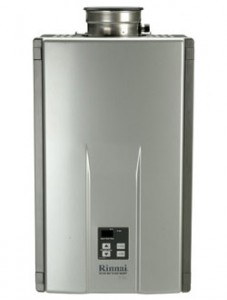 Storage-tank water heaters have served institutional and commercial facilities very well for years. But it is now apparent that this technology can waste more than 50 percent of the potential energy in natural gas and might not make sense, considering today’s rising energy costs.
Storage-tank water heaters have served institutional and commercial facilities very well for years. But it is now apparent that this technology can waste more than 50 percent of the potential energy in natural gas and might not make sense, considering today’s rising energy costs.
Water-heating systems are typically second only to HVAC systems when it comes to the amount of energy consumed. As a result, even small gains in efficiency can lead to big reductions in energy expenses. To meet an increasing market need, manufacturers now offer a range of new systems, including tankless, high-efficiency condensing tanks, and high-efficiency condensing instantaneous heaters.
Tankless heaters offer a number of advantages when compared to a tank heater. Tankless units last longer, take up less floor space, pollute less because of low nitrogen oxide discharge, use less gas, have no tank to dispose of, and offer tighter temperature control — generally, of plus or minus 2 degrees.
They also have no time limit on the hot-water supply at low flows, present no safety issues because of a leaking tank, and avoid problems related to the growth of bacteria such as Legionella in stored hot water.
A tankless heater uses a heating element that can quickly apply high amounts of heat to water flowing through the heater. Unlike a tank heater, it does not use energy to continually heat 50-90 gallons of water. A tankless heater can pay for itself in three-seven years. What’s more, the system does not have a tank to take up space, add weight and potentially leak.
Although all tankless water heaters are more energy efficient than conventional units, some models are more efficient than others. Look for the tankless water heater’s Energy Factor (EF), which measures both heat loss and how efficiently heat is transferred from the source to the water. The higher the tankless water heater’s EF, the more efficient it is.
